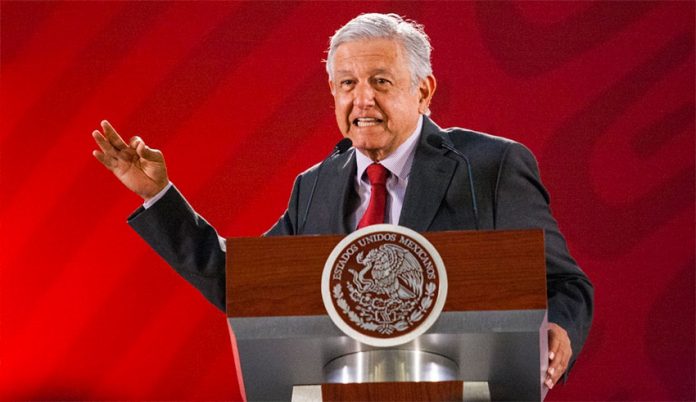Andrés Manuel López Obrador insists that Mexico’s greatest asset is “the honesty of its people,” but independent studies show corruption has worsened in the 18 months since the country’s graft-busting president took office.
Last year, the average bribe per person to public officials — including payments to police and to civil servants — soared 70%, according to state statistics institute Inegi’s latest two-yearly survey, rising from 2,273 pesos in 2017 to 3,822 pesos — equivalent to the monthly salary of 40% of Mexicans.
The Americas Society/Council of the Americas and Control Risks, a consultancy, also had bad news to report: their Capacity to Combat Corruption Index this month scored Mexico 4.55 out of 10, compared to last year’s 4.65. It said López Obrador had cast the anti-corruption fight around his personal ability to eradicate graft and had failed to boost institutions such as the national anti-corruption system, which was set up five years ago and lies incomplete.
The Mexican president, who likes to dismiss unpleasant facts with the catchphrase “I have other data,” has worked his magic on perceptions. However, the Inegi survey in May found a 4.5% drop in the number of people who believed corruption was widespread (even though more people reported having paid bribes). In January, Mexico improved one point in watchdog Transparency International’s 2019 corruption perception index.
“The truth is, every time this is measured … the perception that corruption is falling in Mexico is a reality,” López Obrador said.
Integralia, a consultancy, said the “dislocation between perception and reality” reflected López Obrador’s success at shaping impressions in his daily news conferences, at which he blasts “corrupt” rivals and insists that graft is no longer tolerated.
“There is less public spending and public works, so there is less opportunity [for bribes],” said Pamela Starr, professor at the University of Southern California. “The problem is, there’s nothing to make this permanent.”
The anti-corruption crusading president has accumulated scandals in his midst. Media have reported that Irma Eréndira Sandoval, the minister in charge of ensuring that public servants are graft-free, accepted a plot of land from the city government and acquired several properties while on an academic’s salary. She denies wrongdoing and vowed to pursue “media snipers.”
Manuel Bartlett, head of the state electricity company, denied accumulating a string of undeclared properties; he was later exonerated in a probe conducted by Sandoval’s department.
Bartlett’s son, a businessman, was then caught seeking to sell ventilators for Covid-19 patients to the state hospital system at inflated prices; the social security institute later backtracked and returned them.
The former head of the ruling Morena party, Yeidckol Polevnsky, has also been accused of wrongdoing: her successor has brought criminal charges against her, and she is facing an internal investigation by Morena, over payments for property purchases which allegedly did not take place. She said her conscience was clear.
Priorities may also change: a recent opinion poll suggested that with the Covid-19 pandemic claiming more than 1 million jobs in three months, 71% of voters wanted Mexico’s president, who regularly urges Mexicans to live frugally, to focus on creating jobs instead of fighting graft.
Some also fear that the president’s austerity policies, salary cuts in the administration and rules that tighten the screw on revolving doors for former public servants will undermine his anti-corruption efforts.
“Many bureaucrats had financial commitments that were met by their pre-López Obrador wages,” said one businessman. “But their salaries were cut and now there’s a ban on them working in the private sector for 10 years in their area of expertise, so moving to a better-paying job is no longer an option … the table is set for more corruption.”
Marco Fernández, anti-corruption investigator at México Evalúa, a think tank, and a professor at the Tec de Monterrey, lamented no reduction in impunity. “It’s business as usual,” he said.
© 2020 The Financial Times Ltd. All rights reserved. Please do not copy and paste FT articles and redistribute by email or post to the web.
